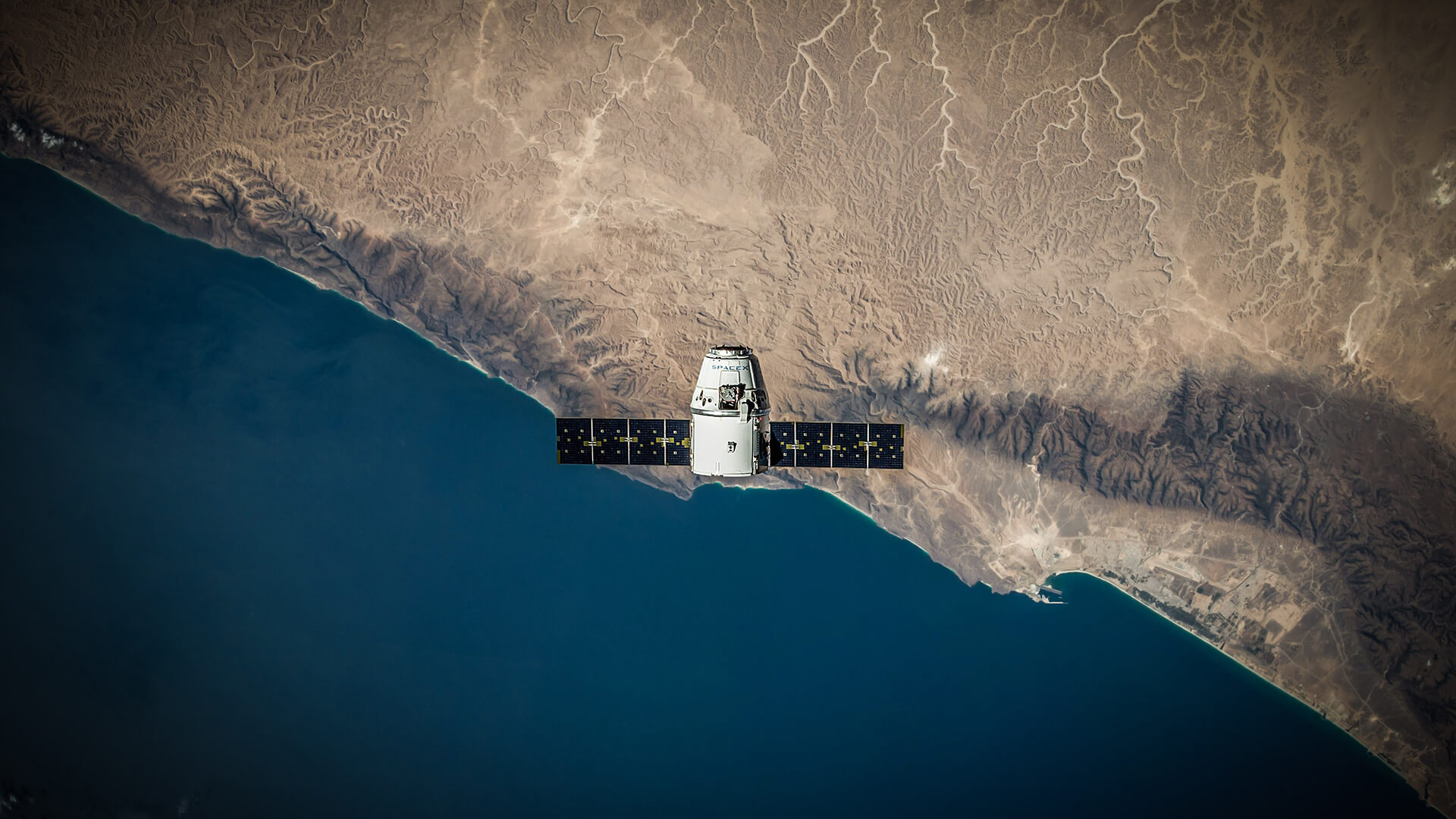Learning how to take the brakes off your own mind is a challenge. We tend to look inwards when looking for innovative new solutions but, there’s a whole world out there to learn from. So, I pulled some of the most creative, out-of-the-box, and forward-thinking stories from this week for myself (and you) to get inspired by.
Space X’s Starlink Satellite System
I so wanted to avoid talking about Elon Musk and SpaceX for our first tech roundup. It was all going so well until I stumbled across some new information regarding their planned Starlink satellite system. SpaceX began launching the first of their 4000 (yes, 4000!) satellites this week. Together, the network will provide high-speed internet to even the most remote areas of the globe. There's a live feed planned for each launch which you can find watch here.

If you had told me a few years ago about a company like SpaceX, I would probably have doubted their potential. Now though, they are taking these seemingly crazy projects and actually making them a reality.
So what’s this new information I mentioned earlier? An article by the Scientific American raised a very real question which many of us had missed. Launching 4000 satellites into orbit creates a massive amount of potential space junk. If SpaceX goes bankrupt, and nobody has plans to remove the satellites from orbit, then we may physically be unable to leave the planet because of all the debris floating around our little ‘space rock’. This is what is referred to as the “Kessler Syndrome”.
BUT! Our good friends at SpaceX already have a truly innovative (and a little creative) solution in place. Their plan is to launch their satellites into a much lower orbit than other satellites. This actually solves 2 problems in 1. Being physically closer to our planet allows for better signal (because nobody likes slow internet). But it also means that if the satellites are not maintained for any reason, they will begin to fall into the atmosphere and completely burn up.
This is such a great story of companies really thinking about the future and impacts of their projects. Not just financially, but also the impact on people and environments. I personally can’t wait to test out their new service!
Microsoft continues its culture of inclusivity
Back in May 2016, Microsoft kind of took me by surprise when they unveiled their Adaptive controller. What makes this particular controller so special is that it's designed specifically for disabled gamers. If you want to know more about what that means to differently abled gamers, you can check out Microsoft's Superbowl Ad.
You see, gaming as an industry has essentially grown year over year for more than a decade. So the fact that Microsoft is investing in the industry isn’t surprising. It’s the fact that they’re actively designing products for the disabled community that puts a smile on my face. More than a year later, it looks like this was far more than a publicity stunt. This week they announced a patent for an Xbox controller with an active braille touch screen. While a patent isn’t the same thing as a finished product, this would be genuinely revolutionary.
This means that someone with “low vision” would be able to read the text on their screen by touching the sensor. Just thinking about how you make something like this gives me a headache, to be honest. The amount of technology that goes into taking words from a screen and turning them into braille in real time is just baffling. This would require thousands of hours of machine learning, plus manual data entry to even get partially right. But it’s cool and I already love it.
It’s kind of hard to be ‘proud’ of a company but the changes that Satya Nadella is bringing about in the organization are just so profoundly noticeable that, well… You just gotta applaud them.
Google takes a stand in the war on privacy
It’s no secret that our entire lives on the internet are monitored, tracked, and followed by just about every kind of tracker imaginable. Our entire lives are out there and it’s tough to find any real solution. You could remove yourself from the online space entirely, but you almost shut out the rest of the world by doing so.
Interestingly enough, Google seems to be one of the first companies taking a serious stance on the subject. On Tuesday, they announced the opening of their first Google Safety Engineering Centre (GSEC) in Munich, Germany. The GSEC will become the global hub of privacy engineering with more than 200 employees expanding the search engines features such as ‘incognito mode’.
Beginning this project in the heart of Europe is by no means a coincidence. Germany is a well known ‘privacy conscious’ government, setting up shop and launching new projects from within the country will help to keep the pressure on their projects.
Within a few years, the ‘Internet of Things’ is sure to shape the online world yet again. It can go in a couple of different directions (for better or for worse), I only hope that more companies take up initiatives like this which put the public’s safety first.
What should you take away from this?
While SpaceX, Microsoft, and Google are titans in the tech world, these ideas still come from regular people. People who run on coffee and the occasional ham sandwich. They just learned the secret of not holding back when looking for a solution. In their world, nothing is too crazy and there’s no reason that it shouldn’t be the same for you.


